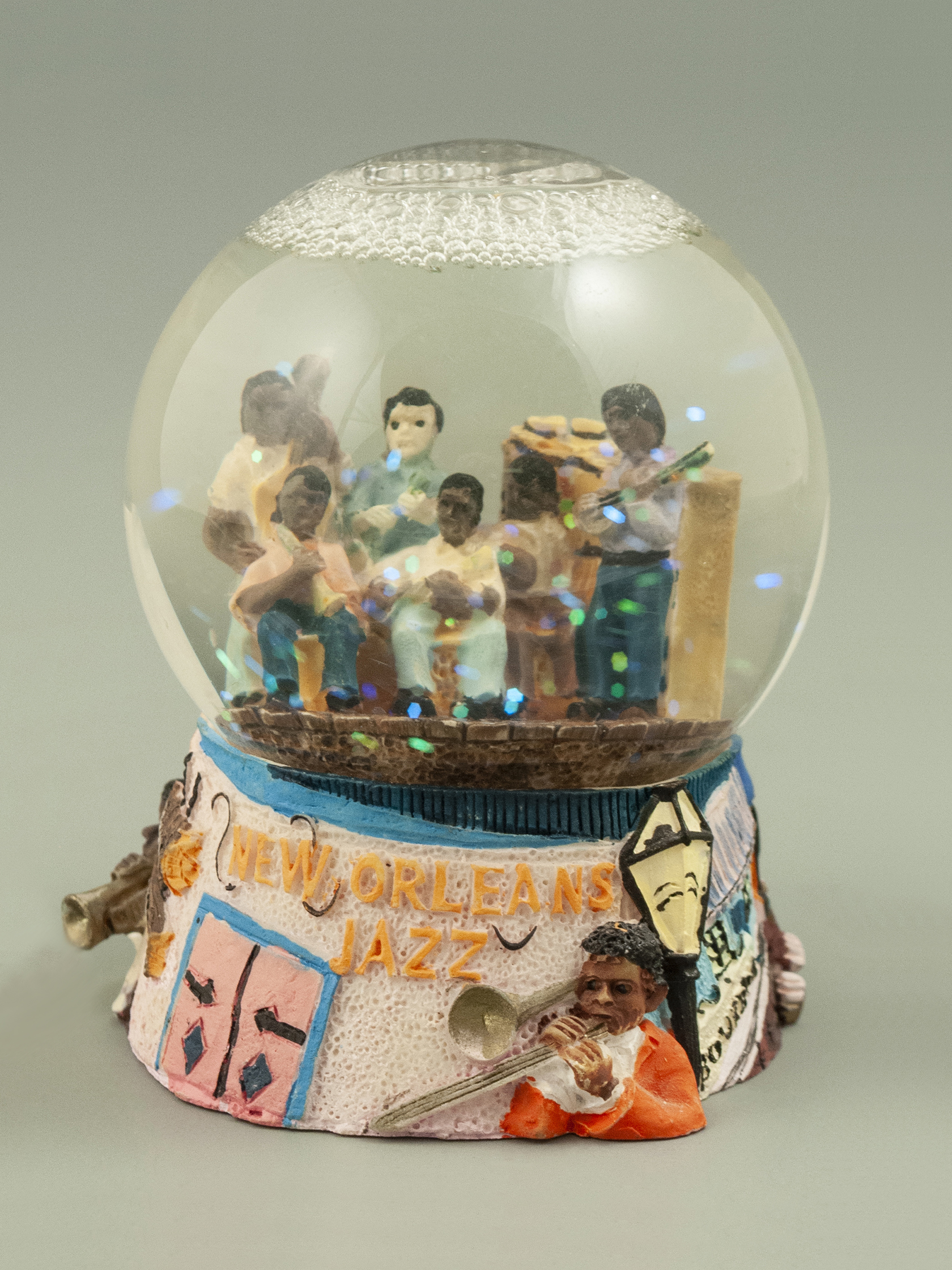Snow Globe
New Orleans, 2019

Dwayne and I embarked on a road trip to the Deep South, as we call it up north. We began in Montgomery, Alabama. Our first destinations were the two projects created by civil rights activist and attorney Bryan Stevenson: The Legacy Museum (i.e., the slavery museum) and The National Memorial for Peace and Justice (i.e., the lynching memorial). I had wanted to see these places with my closest African American friend, and didn’t feel sheepish asking Dwayne to make the trip with me.
The slavery museum narrates the bleakest poles of the Black American experience: from slavery to mass incarceration. To visit that place, and descend afterwards into the solemn pit of the lynching memorial, is to understand that racism in America is an open wound.
After Montgomery we drove north to Selma, parked in the town, and walked together across the Edmund Pettus Bridge. From there we steered west into Mississippi, en route to New Orleans. We avoided the interstate. Our hope was to see the “real” Mississippi. I guess we didn’t get deep enough; through our windows it was all strip malls and churches, Walmarts and frozen yogurt shops. The one exception was the tiny town of Lumberton, population 2,228. An intersection split its business district: a Family Dollar, gas station, and small grocery store.
We passed through Lumberton, Dwayne at the wheel. A minute later he drew in his breath. “Aw, shit,” he said. I glanced in the side view mirror, dismayed to see flashing blue lights.
The cop ambled over from his patrol car. A little pudgy, vivid blue eyes, right out of central casting. His uniform button-down was open, over a yellow Lumberton PD T-shirt. “Good afternoon, gentlemen,” he said. “Do you know why I pulled you over?”
Of course Dwayne knew why he’d been pulled over. And it wasn’t the rented Ford with the out-of-state plates. “No, sir, I really don’t.”
“Well,” said the officer, “you ran that stop sign back there at the intersection.”
“Officer…” Dwayne shook his head. “I stopped for that stop sign.”
“No, sir,” the cop replied. “I watched you blow right past it.”
“I was watching,” I offered, absurdly. “He really did stop.”
The policeman ignored me. “License and registration, please.”
Dwayne had his wallet ready, and handed it through the window. The officer flipped it open, studied it for a few seconds, and held it back to Dwayne.
“Thank you for your service,” he intoned respectfully. “Y’all have a good day.”
And he walked away.
Lt. Dwayne Newton had retired from the San Francisco Fire Department three years earlier, but he got to keep his badge. Nonetheless, he seemed as astonished as I was. “That could have gone a number of ways,” he reflected. Then his eyes lit up. He leaned back out his open window. “Hey!,” he called. The officer turned around.
“I’ll make you a deal,” Dwayne said.
Utter befuddlement on the cop’s side. “Excuse me? I’m letting you guys go.”
“No, no, no,” Dwayne said. “Listen: If you send me a Lumberton PD T-shirt, I’ll send you an SF Fire Department T-shirt.”
“Sure!” They laughed together, and exchanged business cards.
No place—not even my friendship with Dwayne—is color-blind. But when we get a glimpse of what that world might look like, it stays with us. Still, we made full stops clear through to Louisiana.
